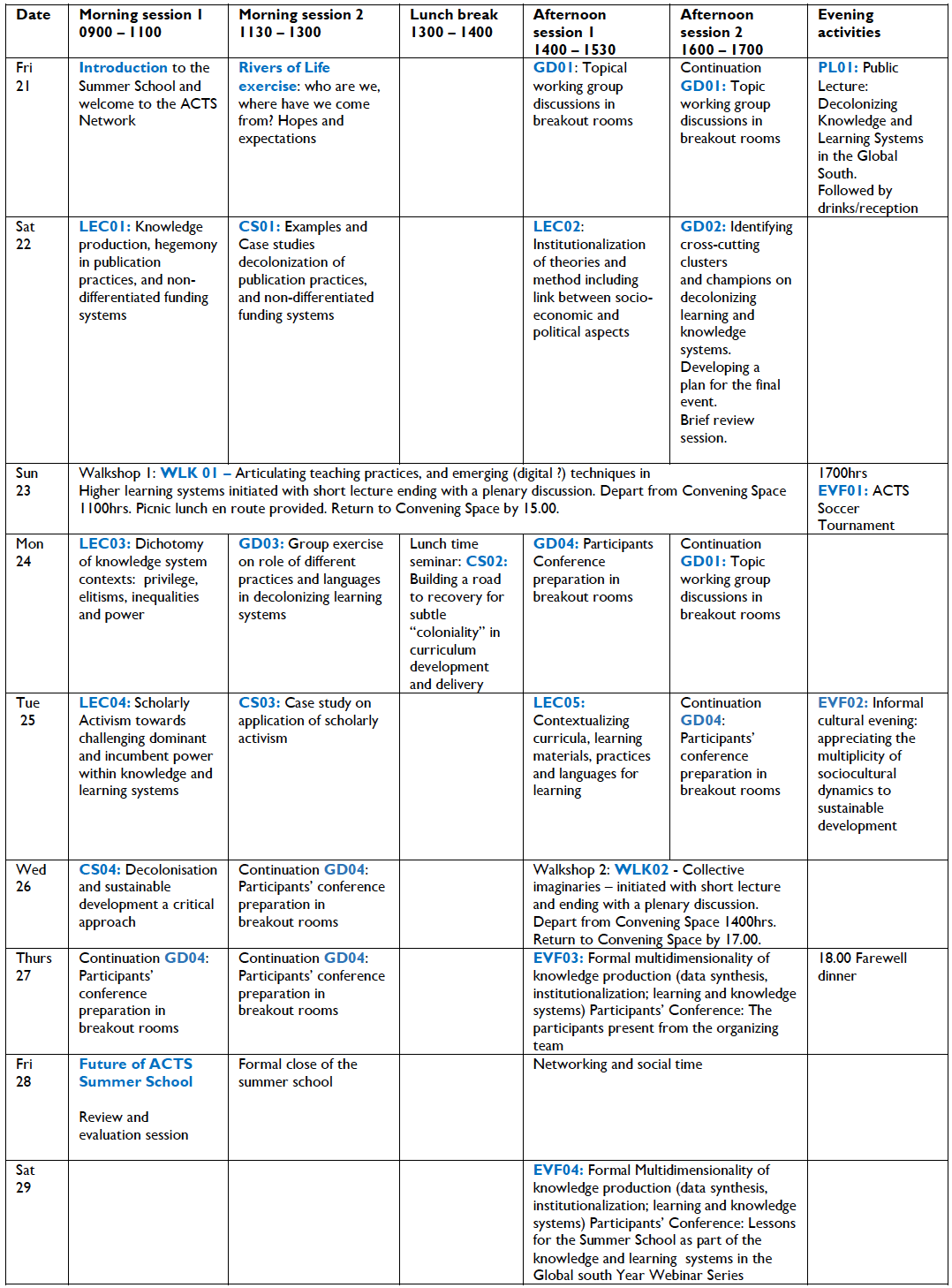
Background
There are growing debates on the decolonisation of knowledge systems in academia, research and policy appraisal through the recognition of and integration of alternative knowledge originating from diverse ontologies and epistemologies. Yet, ‘decolonisation’ has many facets and ideas given its growing literature. On the one hand, it is argued that decoloniality scholarship should go beyond usual critique of epistemology and methodologies and on the other engage with alternative visions around transformation by inclusion, tackling injustices, creating social justice, the dismantling of fossil capitalism and colonial property[1][2].
The ‘decoloniality’ debates have recently grown in social sciences studies, sustainability and environmental debates, highlighting notions of colonizing practices, with the implication that some or other ‘decolonisation’ is required. But these claims remain little more than abstract in academic debates. In light of the growing global decolonisation movement, there are calls to decolonise research and research agenda – which are often detached from local contexts and situations. It is becoming increasingly important for researchers and the research community to map out debates and general concepts in the decoloniality literature particularly in the global South and prioritize debates/themes that will contribute to sustainable development. Our current review has revealed a number of emerging themes that will be useful to global South debates in taking a decolonial approach in the knowledge and learning systems. While these debates are important for the research agenda, there is a need to map scholarly work and entry points for global South countries in order to support research on decolonisation work. Such a sharpened reflection and a map of potential research areas provides entry points for decoloniality in knowledge and learning systems in the global South to provide learning opportunities through critical pedagogies, scholarly activism, and transdisciplinary training.
About the summer school
Drawing from the lessons on the Decolonising knowledge and learning systems webinar series (practices) https://t.co/o1oJKcc26g , and book project (theory), the summer school will provide a practical opportunity for participants to explore the various themes to inform policy decisions and wider academic and political debates to enable learning, enrich knowledge, enhance practice and nurture more emancipatory outcomes in the Global South. At the end of the training sessions, the participants will participate in the ACTS engagement workshop, as part of their post-summer school alumni engagement. The summer school takes into consideration a learner centered approach, allowing for theory, practice, and practical approaches.
Target participants
The participants in the summer school will be drawn from multiple stakeholders and sectors, and will cut across various actor groups of interest to decolonisation of knowledge and learning systems, and valorisation of next generation of practical approaches for learning and decoloniality leadership. Specifically the summer school targets PhD students and early career researchers, policy makers, and practitioners contributing to sustainability and trans-displinary and inclusive approach within knowledge and learning systems.
Methods of delivery
The school will bring together acclaimed scholars of the all geographic regions, with representation from academic and research organizations, researchers, policy makers, governments, international organizations, think tanks, NGOs, civil society, indigenous communities and others aiming to offer each participant the opportunity to follow:
- Roundtable discussions and lectures
- Joint lectures every morning delivered by different international scholars
- Case study course sessions delivered by different international scholars
- Workshop and/or walk shop groups in the afternoon to discuss the research projects contributing to Decoloniality of knowledge and learning systems of each participant addressed to small groups of 10 to 15 participants
Course content and schedule (21st - 29th October, 2022)

Applications
 |
Application details
Application form details:
- Name
- Address (email, location, affiliation, physical address)
- Qualifications (brief on relevant qualification)
- Relevant experience (long question 500 words max)
- Motivation (brief on suitability)
- Funding (self-sponsor, scholarship, organization sponsor)
Deadline: 10th September 2022
Confirmation of admission to the summer school: 20th September 2022
School dates: 21st – 29th October 2022
Suggested Sub-Topics to include in the schedule
Sub-Topics
- Knowledge production, hegemony in publication practices, and non-differentiated funding systems
- Institutionalization of theories and methods
- Dichotomy of knowledge system contexts: privilege, elitisms, inequalities and power
- Pedagogies, teaching practices, and emerging (digital ?) techniques in higher learning systems
- Scholarly activism towards challenging dominant and incumbent power within knowledge and learning systems
- Contextualizing curricula, learning materials, practices and languages for learning
References
[1] G. Crawford, Z. Mai-Bornu, and K. Landstrom, “Decolonising knowledge production on Africa: why its still necessary and what can be done,” J. Br. Acad., vol. 9s1, pp. 21–46, 2021, doi: 10.5871/JBA/009S1.021.
[2] S. J. Ndlovu-Gatsheni, “The cognitive empire, politics of knowledge and African intellectual productions: reflections on struggles for epistemic freedom and resurgence of decolonisation in the twenty-first century,” https://doi.org/10.1080/01436597.2020.1775487, pp. 1–20, 2020, doi: 10.1080/01436597.2020.1775487.

